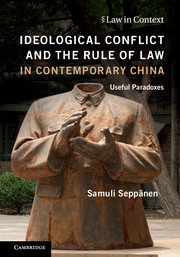Book contents
- Frontmatter
- Dedication
- Contents
- Foreword
- Preface and acknowledgments
- 1 Introduction
- 2 Setting the stage
- 3 Ideological cynicism meets theoretical skepticism
- 4 Useful paradoxes: the conservative socialist ideological position
- 5 Thick mainstream, thin liberalism and vice versa
- 6 Avant-garde renewal and nostalgia
- 7 Conclusions
- Textbook answers to the questions in Chapters 1–6
- Bibliography
- Index
6 - Avant-garde renewal and nostalgia
Published online by Cambridge University Press: 05 July 2016
- Frontmatter
- Dedication
- Contents
- Foreword
- Preface and acknowledgments
- 1 Introduction
- 2 Setting the stage
- 3 Ideological cynicism meets theoretical skepticism
- 4 Useful paradoxes: the conservative socialist ideological position
- 5 Thick mainstream, thin liberalism and vice versa
- 6 Avant-garde renewal and nostalgia
- 7 Conclusions
- Textbook answers to the questions in Chapters 1–6
- Bibliography
- Index
Summary
Which of the following statements describing the characteristics of law are correct?
A.Historically, all legal provisions have been clear and determinate.
B.Law is the main basis for the handling of cases by judicial organs.
C.Judicial organs can decide cases in accordance with extralegal social norms.
D.Law is manifested through the political will of the state.
– Preparatory Material for the Public Examination for the Recruitment of Provincial (City and County) Level Public Institution Staff, 21.Introduction
The two previous chapters provided examples of ideological projects that both make use of and are destabilized by various paradoxes, contradictions and conflicts. This chapter considers Chinese “avant-garde” scholarship, which, in contrast to the other three ideological positions, foregrounds paradoxicality. A strand of Chinese avant-garde scholarship identifies an element of paradoxicality in its own ideological project and explains this as a necessary and positive consequence of ideological renewal. The avant-garde tolerance for paradoxicality is caused by the discrepancy between the radical role that Chinese avant-garde scholars have assumed and the actual results of their scholarship. Instead of settling for existing rule of law conceptions, avant-garde scholars look for means to increase social integration and harmony, to facilitate self-discovery of the Chinese people and to expand Chinese and global intellectual horizons.
As such, there need be nothing utopian or unrealistic about such ambitions. It is certainly possible to imagine a form of social order that differs radically from the models presently promoted by Chinese conservative socialists, mainstream scholars and liberals. One only needs to look back to the 1970s to find a model for society that was not based on the conservative socialist dichotomy between autonomous law and the Party's will, on the mainstream notion of individual freedom and equality protected, to a limited extent, by rights, or on the liberal ideal of procedural justice. In the 1970s urban China was built around the “work unit” or danwei. The danwei was a cellular society (a factory or a hospital, for instance) that was often literally enclosed by walls.
- Type
- Chapter
- Information
- Ideological Conflict and the Rule of Law in Contemporary ChinaUseful Paradoxes, pp. 134 - 163Publisher: Cambridge University PressPrint publication year: 2016



